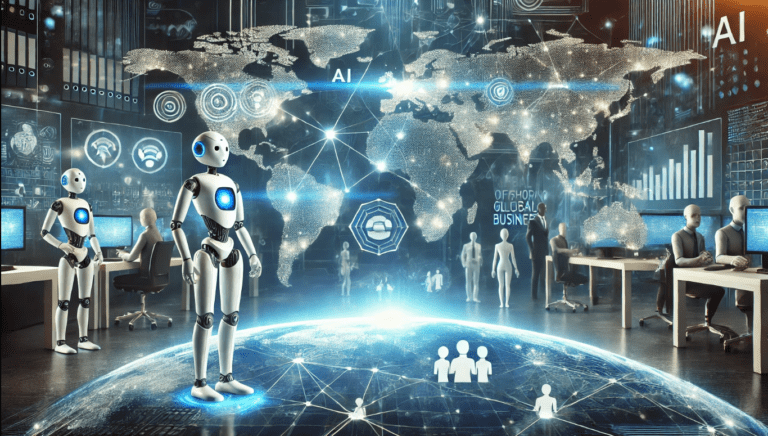In today’s interconnected world, the integration of artificial intelligence (AI) into offshoring practices is revolutionizing global business operations. By merging the power of AI with the traditional advantages of offshoring, companies are unlocking unprecedented levels of efficiency, driving innovation, and fueling growth. This article explores how AI is transforming offshoring and why it represents a paradigm shift in the global workforce.
Enhanced Efficiency Through Automation
Access to a Global Talent Pool
Offshoring has traditionally been about accessing cost-effective labor in different parts of the world. However, intelligent platforms take this to the next level by enabling businesses to leverage specialized talent from across the globe. These systems can identify and match highly skilled professionals to specific tasks, ensuring optimal alignment between workforce capabilities and business needs.
Furthermore, collaborative tools can facilitate seamless interaction across time zones, languages, and cultural differences. Virtual assistants, real-time translation software, and project management platforms empower global teams to work together more effectively, breaking down barriers that once hindered productivity.
Driving Innovation
Cost Savings and Scalability
Challenges and Considerations
While the benefits of AI-driven offshoring are immense, businesses must navigate certain challenges. Data security and privacy concerns are paramount, particularly when dealing with sensitive information across borders. Ensuring compliance with international regulations and ethical AI practices is essential.
Additionally, businesses must invest in training and upskilling both onshore and offshore teams to work effectively with AI technologies. This requires a commitment to continuous learning and adaptation to stay ahead in a rapidly evolving landscape.
The Future of Offshoring with AI
AI-driven offshoring represents a transformative approach to global business operations. By combining the cost advantages of traditional offshoring with the capabilities of cutting-edge AI, companies can achieve unparalleled efficiency, foster innovation, and drive sustainable growth.
As AI technology continues to evolve, its integration into offshoring will only deepen, creating new opportunities and reshaping the global workforce. Businesses that embrace this trend will be well-positioned to thrive in an increasingly competitive and interconnected world.Additionally, businesses must invest in training and upskilling both onshore and offshore teams to work effectively with AI technologies. This requires a commitment to continuous learning and adaptation to stay ahead in a rapidly evolving landscape.



